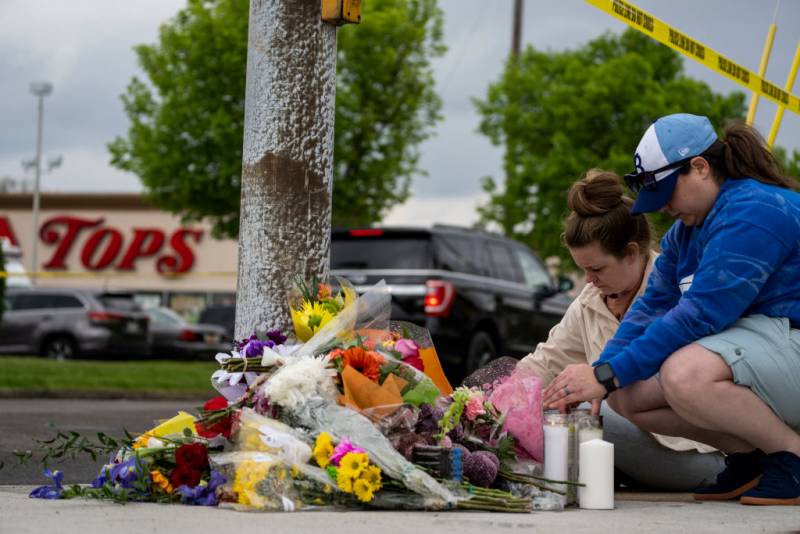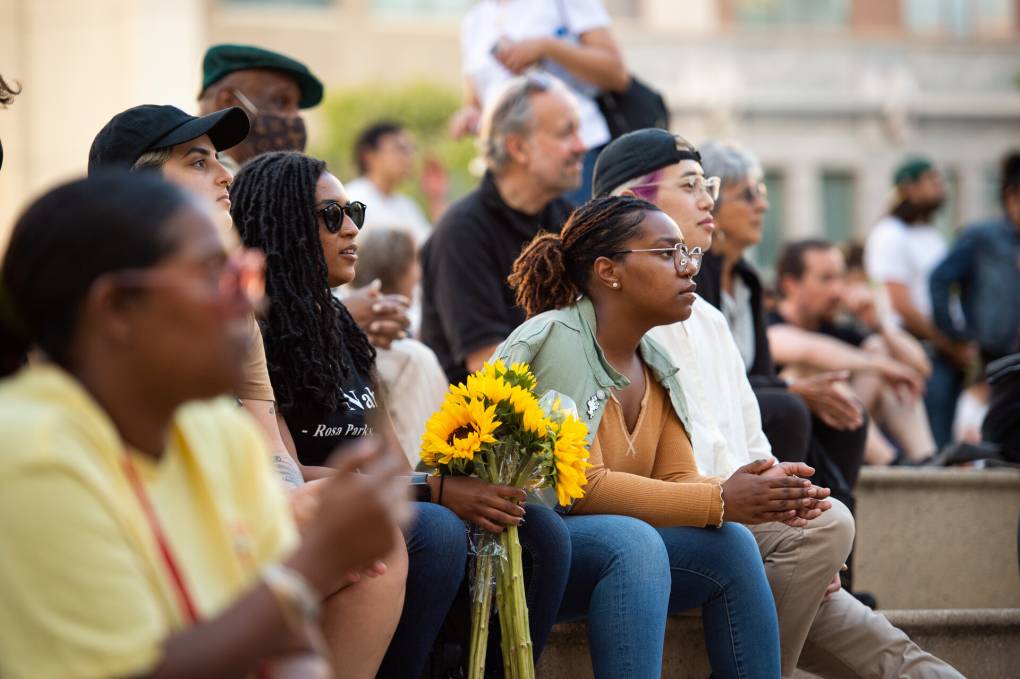By doing this repeatedly, you move over to the window of … what [once] was considered forbidden that is now considered acceptable discourse. Then the second thing they do is, “Well, we’re just kidding. Well, we’re just joking.” Or, “We’re not just journalists. We’re not reporters. We’re just entertainers. We’re just joking. These are just jokes.”
And then the third thing they do is a projection — deflection. They project onto the majority what they’re actually doing. “It’s actually you, the left, that’s radical. It’s actually you, the liberals who are racist. In fact, you and Otis are the race hustlers playing the race game by calling everyone else a racist.” That’s your deflection. You call all of us white supremacists.
And what we say is, no, I’m calling you white supremacists because you act and behave and talk like a white supremacist. And the failure of institutions and the majority and many — not you — of our media colleagues is they fall for it like Charlie Brown and Lucy in the football episode. And they do both-sides analysis. That’s the same thing as the right wing with its wealth of white supremacist talking points.
Both sides are extreme, and that’s how you launder and mainstream and Trojan-horse what was once fringe white supremacist talking points into mainstream talking points that are now believed by half of Republican voters and a third of American voters. And this is how you normalize hate. It’s happening right before our eyes.
So, what can we do about this?
OTIS R. TAYLOR JR.: What we’re seeing is what I believe is a lack of representation. The Bay Area is 60% people of color. California, the state, is majority people of color. But the majority of representatives in Sacramento and in Bay Area politics are white people. In fact, in the Bay Area, it’s 60% white people who represent the majority people of color.
WAJAHAT ALI: I get asked this question a lot: “I’m nobody and I’m not on TV like you. And what can I do? I’m overwhelmed. There’s so many problems.” And I always say, “I love nobodies. Some of my favorite people are nobodies. I’m a nobody.”
At the end of the day, we can only control our own intentions and our own actions. And I understand that everyone’s overwhelmed. And so what I would recommend people doing is the following:
No. 1, have awareness, be aware of what’s happened in this country.
No. 2, make an intention to do something.
And No. 3, then act. Act at the local level. First and foremost, act at the local level. Specifically, these forces that want to literally flatten us and violently remove us, are taking over school boards, city councils, medical boards. There’s no reason why you — yes, you listening right now — cannot run for office. Look at some of the Republicans who are elected. The bar is low. I want you to run for office. I want you to represent yourself in your community. I want you to show up.
What they want us to do is be intimidated. We get intimidated. We don’t show up. They take over. They want us to cede the ground. We have the numbers. We just need to flex the numbers. We have the majority.
I’d also say, be the America you want this country to be in your daily actions. If you’re a parent, model this type of language and these values in your home. You’ll be influencing generations.
If you’re at a workplace, speak up, speak out, speak out for others to change the culture of your workplace. Look for equity, equal wages, opportunities. Reach out to folks who are marginalized and try to bring them in, mentor them.
When it comes to media, call up your local newspaper, be a resource for them or speak up. Say something like, “Hey, how come you didn’t have a voice talking about X, Y and Z?”
And then also, vote if you can, because the largest group that does not vote is the people who can vote but don’t vote. Right, everyone says Republicans and Democrats. The biggest chunk of the pie are people who are eligible to vote in this country and they choose not to vote. You have to vote. Don’t be on the sidelines. Don’t choose apathy. Don’t choose cynicism. We have to have you to invest in hope and invest in this country. And that means getting in the ring and being made to be felt uncomfortable and making other people feel uncomfortable. This is the only way.
And finally, you have to build a multicultural coalition of the willing. This is affecting all of us. So reach out and link up with other groups because we have the numbers. We have to flex them.


